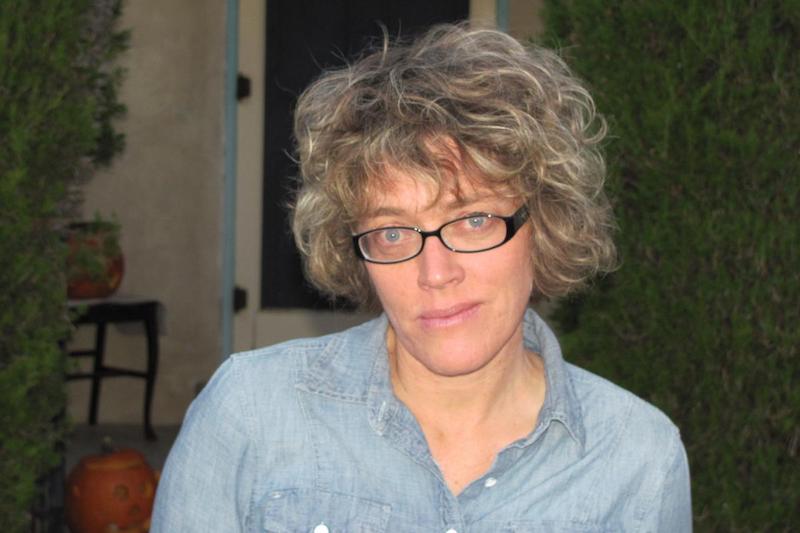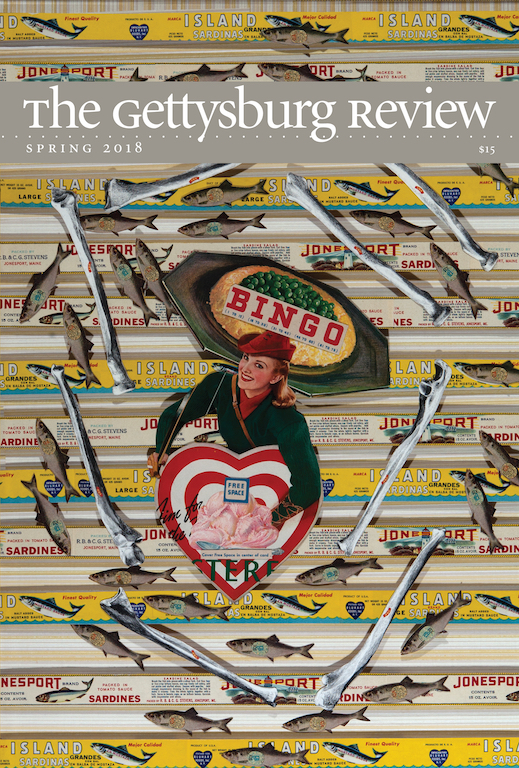bodies of agate. † Draw close the bones of this biddable metal: chalice & ingot, gilt saints on cypress planks,Agamemnon’s mask unearthed. Sulfur & salt: the alchemist’s scarred hands. Think men upon their kneesbefore the riverbed for that Black Hills silt, that sluice long girdled in the zigzag crack. Othat lucre. The worshipful company’s murderous guilds— It’s too late now to look away from that bright flame,too late to take the value back from filigree or sacred blade, ransom-gilded Seric, idol,from hidden trove or gently beaten fleece. South of Ulaanbaatar cranes decorate the skyline.In the Congo children work the pit shifts. Mercury & silica will grace the margins of each living membrane’stender stem & inch of lymph. All flesh thus tempered, thus fixed in the mine’s dark mouth.Ûdwr. Meaning divine water. Physika kai mystica: the secret things.Our guide in Potosí lighting his cigar with dynamite: “No se preocupe, trabajo par Sendero Luminoso!” Handscupping the bright flame. Tracing the halo. The hoards turned up by English plowmen, amuletsin shafts along the overpass. Shields beaten thin & dropped unearthly to your brokerage screen, leverageon the scale of equity. Percolated, according to Theophilus, from vinegar, red copper, human blood & ash of basilisk.? †Ezra Pound, “The Alchemist” ?Consult page 54 for how to grow a basilisk.
Assume the Milk-White
Feature Date
- August 24, 2019
Series
Selected By
Share This Poem
Print This Poem
Copyright © 2018 by Amy Beeder
All rights reserved.
Reproduced by Poetry Daily with permission.

Amy Beeder is the author of And So Wax Was Made & Also Honey (Tupelo Press). A recipient of an NEA fellowship, a Discovery/The Nation Award, and a James Merrill fellowship, she has worked as a creative-writing instructor, freelance writer, reporter, political-asylum specialist, sous chef, high-school teacher in West Africa, and an election-and-human-rights observer in Haiti and Suriname. Her work has appeared in AGNI, the Kenyon Review, Ploughshares, Poetry, the Southern Review, and other journals. She lives in Albuquerque, New Mexico.

Spring 2018
Gettysburg, Pennsylvania
Gettysburg College
Editor
Mark Drew
Managing Editor
Lauren Hohle
Founding Editor
Peter Stitt
The Gettysburg Review, published by Gettysburg College, is recognized as one of the country’s premier literary journals. Since its debut in 1988, work by such luminaries as E. L. Doctorow, Rita Dove, James Tate, Joyce Carol Oates, Richard Wilbur, and Donald Hall has appeared alongside that of emerging artists such as Christopher Coake, Holly Goddard Jones, Kyle Minor, Ginger Strand, and Charles Yu.
More than one-hundred short stories, poems, and essays first published in The Gettysburg Review have been reprinted in the various prize anthologies—The Pushcart Prize: Best of the Small Presses, The Best American Poetry, Essays, Mystery Stories, and Short Stories, New Stories from the South, as well as Prize Stories: The O. Henry Awards—or have reappeared in such esteemed publications as Harper’s. In addition, The Gettysburg Review’s editing, elegant design, and stunning graphics have earned numerous prizes, including a Best New Journal award and four Best Journal Design awards from the Council of Editors of Learned Journals, and a PEN/Nora Magid Award for Excellence in Editing.
We invite you to share in and support our endeavor by submitting to, reading, and, most importantly, subscribing to The Gettysburg Review. With its award-winning editing, writing, and design, The Gettysburg Review is, as one reader put it, “Pure delight, every time.”
Poetry Daily Depends on You
With your support, we make reading the best contemporary poetry a treasured daily experience. Consider a contribution today.



